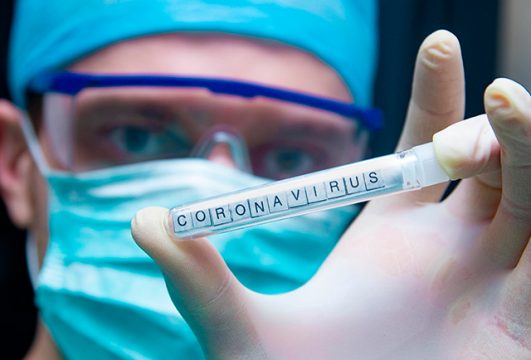Roughly one out of every 100 healthcare workers at hospitals receiving COVID-19 patients become infected. Statistics are not uniform for all corners of earth, and they do not indicate that being on the front line necessarily entails higher risk.

A large analysis conducted in the initial epicenter of the COVID-19 pandemic (Wuhan, China) showed that 110 of 9684 healthcare workers (1.1%) tested positive for the new virus. Only 17 of those 110 subjects worked on the front line, which translates into an infection rate of 0.5% among this group.
Paradoxically, the infection rate was higher among those not on the front line. As a matter of fact, the risk of infection was 16 times greater among nurses who were not first-line staff.
This is likely explained by insufficient protective measures and a sense of being out of danger experienced by staff not directly tending to infected patients.
Among healthcare workers, 85% did not experience severe disease. Over half of them experienced common symptoms [myalgia or fatigue (60%), coughing (56.4%), sore throat (50%), and muscle aches (45.5%)].
Read also: Priorities in the Cath Lab to Escape COVID-19 Tsunami.
A similar study was conducted in the Netherlands, and the infection rate was 1% among a total of 9705 healthcare workers. Only half of them experienced fever and another mild associated symptom.
This is a huge problem hindering disease control, since most healthcare workers are young, with very mild symptoms (if any at all). Beyond their symptoms and their own health risk (which is extremely low), the main issue is that these workers could act as vectors for low-risk hospital areas or areas assigned to non-infected patients.
Título original: Estimating coronavirus disease 2019 infection risk in health care workers.
Referencia: Cheng V et al. JAMA Netw Open. 2020;3(5):e209687.
Get the latest scientific articles on interventional cardiologySubscribe to our weekly newsletter
We are interested in your opinion. Please, leave your comments, thoughts, questions, etc., below. They will be most welcome.




